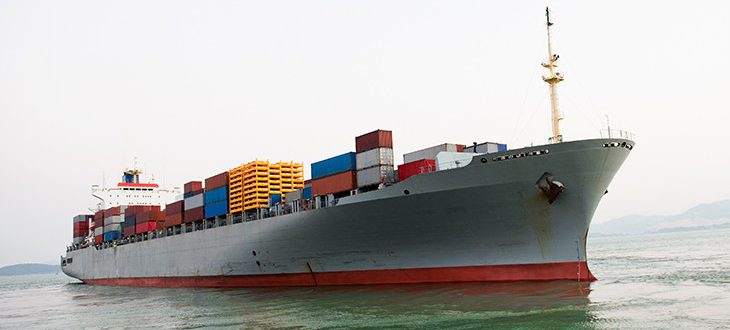Industrial Nanotech, Inc. announced the completion of a successful project with their patented Nansulate High Heat temperature control coating (TCC) to insulate and prevent corrosion on the heavy fuel oil (HFO) system of a container vessel. The coating was documented to reduce the diesel fuel used to heat the HFO system by 30%, reducing the daily diesel fuel use by 360 liters per 24 hours, which equates to more than 7,500 liters of diesel fuel saved during a typical 21 day round trip Asia/US/Asia journey, equivalent to approximately $3,525 USD or more in cost savings. The project was undertaken on a 3,725 TEU container vessel.
The Company’s High Heat insulating and anti-corrosion coating was applied to the HFO tanks and tubular system at a coverage of 6-coats, totaling a 0.20 millimeter final dry film thickness. The cost of application and materials used to insulate the HFO tanks and tubular systems was $16,100 USD. The return on investment was achieved after 95 days of sailing.
“This project, completed by an established Dutch maritime company, provides an entry into the maritime industry,” stated Francesca Crolley, V.P. Business Development for Industrial Nanotech, Inc.
“A savings of thirty percent in diesel fuel costs for the HFO systems aboard container ships, cruise ships, and other vessel types and with such a short payback period is significant. Additionally, that savings doesn’t reflect the benefit of reduced replacement and maintenance costs from protecting the HFO system from corrosion.”
”Our coatings are uniquely suited to the marine environment because of their excellent corrosion, salt spray and salt air resistance. Besides the positive impact this has on the bottom line of the vessel operators and potential reduced shipping costs, it also means great things for the reduction of carbon emissions and running more sustainable ocean voyages. If we use the well-to-wheel fuel emissions factor for diesel oil of 2.9kg CO2/liter, that is a savings each 24 hours of sailing of 1,044 kg of CO2 emissions. For a 21 day voyage, that’s a reduction for one vessel of 21,924 kg (24 tons) of emissions.”, she added


Slowed down heat flux from HFO tanks to wing and double-bottom tanks
Prevented corrosion under insulation (CUI)
Cost for product and application was $16,100 USD
Payback achieved after just 95 days of sailing.
Ms. Crolley continued, “According to Drewry Maritime Research, the total number of container ships amounted to 5,088 vessels as of August 2014, with a capacity of 17.8 million twenty-foot equivalent unit (TEU), so if we estimate product cost per equivalent capacity vessel, that would mean product sales revenue to Industrial Nanotech, Inc. of over $38,000,000 US just for container ships alone, not including all other types of ships. According to a Review of Maritime Transport 2014 publication from the United Nations Conference on Trade and Development, as of January 2014 the world fleet, including all vessel types — cargo, bulk carriers, oil tankers, cruise ships, and others — totaled 47,601. So there is potential for this to be a very significant revenue stream for Industrial Nanotech in 2016. We look forward to working with our partners in the maritime industry and governments globally to implement this solution in this important transportation sector.”
In addition to lowering international shipping costs, the value of reduced pollution in the major ports of Shanghai, Singapore, Hong Kong, Los Angeles, Rotterdam, Antwerp, Hamburg, New York, New Jersey and many others around the world and the resulting reduced carbon emissions is incalculable.
The full case study can be found by clicking here
Source & Image Credit: Industrial Nanotech































































